Alaa Abdel Fattah: Egypt prison broke activist's hunger strike - family
- Published
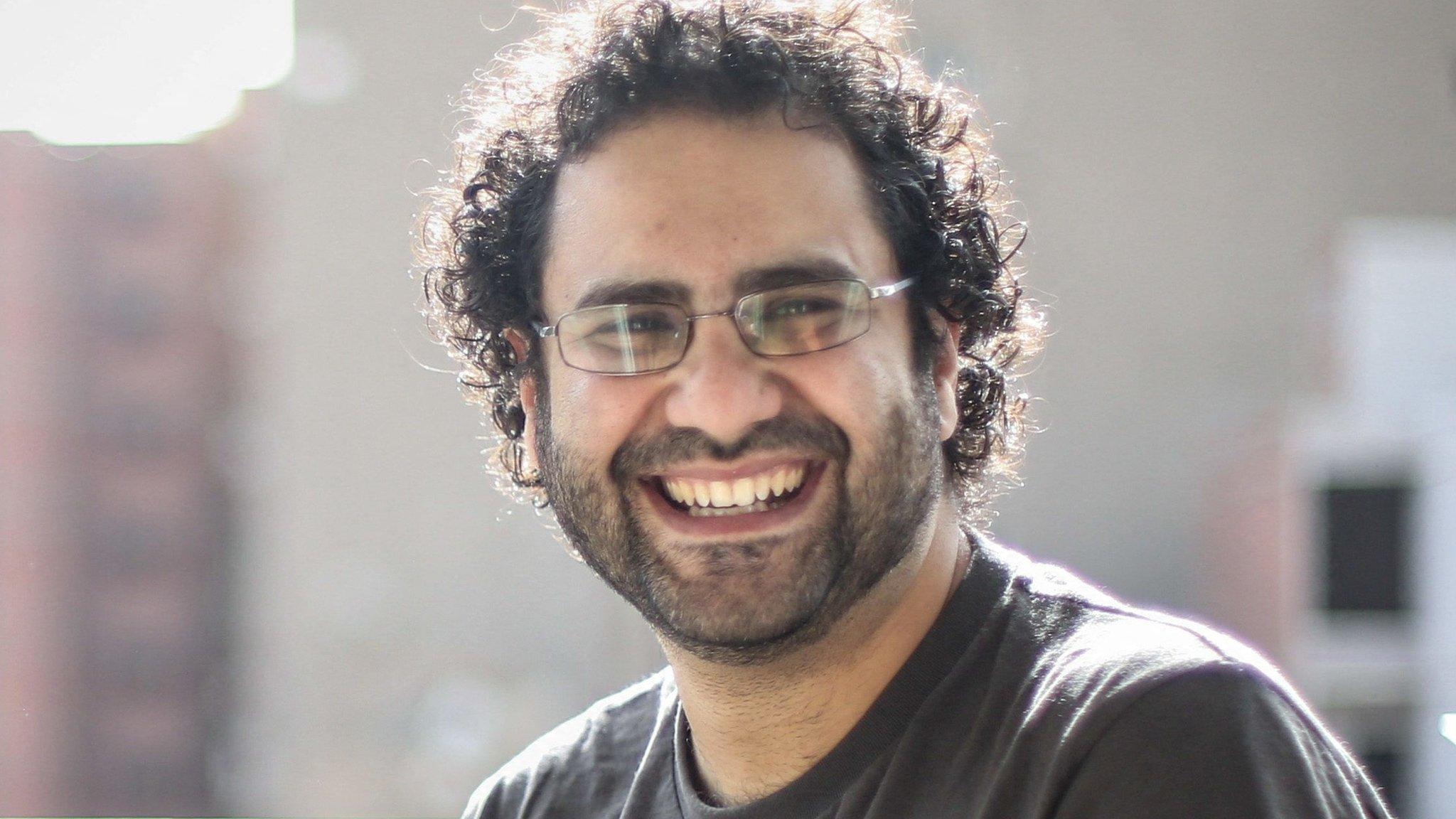
Alaa Abdel Fattah told his family in a letter that he had ended his hunger strike on Monday
The family of jailed British-Egyptian activist Alaa Abdel Fattah says his hunger strike was broken for him last Friday by prison authorities in Egypt after he had a "near-death experience".
Abdel Fattah told his mother, sister and aunt during a visit that he collapsed in his cell and awoke with an intravenous drip in his arm.
He had stopped drinking water to press Egypt to allow him access to British consular officials.
"My heart is wrung," his aunt said.
"He looks so frail, so thin and so weak. But I'm also tremendously encouraged and tremendously proud of him. Because he's still himself, the lucidity, the energy, the determination," Ahdaf Soueif, the Egyptian novelist, told the BBC's Caroline Hawley.
Allow X content?
This article contains content provided by X. We ask for your permission before anything is loaded, as they may be using cookies and other technologies. You may want to read X’s cookie policy, external and privacy policy, external before accepting. To view this content choose ‘accept and continue’.

Abdel Fattah, a 40-year-old blogger and pro-democracy activist, is the best known of Egypt's estimated 60,000 political prisoners.
He is currently serving a five-year sentence for allegedly "spreading false news" - a charge that human rights groups condemned as spurious.
He began a partial hunger strike in April, consuming a maximum of 100 calories a day, to protest against his conditions and Egypt's refusal to recognise his British citizenship and allow embassy officials to see him.
His family's last visit was on 24 October, a week before he decided to stop consuming food altogether. On 6 November, he also started refusing water to coincide with the start of the COP27 climate conference in the Egyptian Red Sea resort of Sharm el-Sheikh, hoping to increase the pressure Egypt's leaders.
His mother Laila Soueif was told by prison officials last Thursday that he had undergone an unspecified "medical intervention" and the public prosecution asserted that he was in "good health", without providing any proof.
This week, his mother received notes from him, saying he had resumed drinking water on Saturday and ended his hunger strike on Monday. But she was not allowed to see him in person until now.
(July 2022) Alaa Abdel Fattah: 'He’s certain he’ll never come out of prison alive'
"We saw him in the visitation booth of Wadi al-Natroun prison, with a glass barrier between us, with one very faint headset that we could talk to him through one at a time," the family said in a statement, external.
Abdul Fattah told his mother, aunt and sister that on 8 November he was tied down in his cell after refusing to submit to a medical examination and after hitting his head against a wall.
He told his family he was in the shower in his cell last Friday when he collapsed.
"He tried to dress, and fell over and this time he fell unconscious. When he came to, he was surrounded by people and his head was cradled by one of his cellmates and there was a canula in his body which gave him a lactate solution and glucose. Then they gave him electrolyte fluid, a spoonful of honey and a pickle."
"There were lots of people there and they needed to save his life. He talked about all of this as a near-death experience. This is how the hunger strike was broken."
There was no immediate response from the Egyptian government.
The UK Foreign, Commonwealth & Development Office said Prime Minister Rishi Sunak raised his case with Egyptian President Abdul Fattah al-Sisi at COP27 last week.
- Published15 November 2022
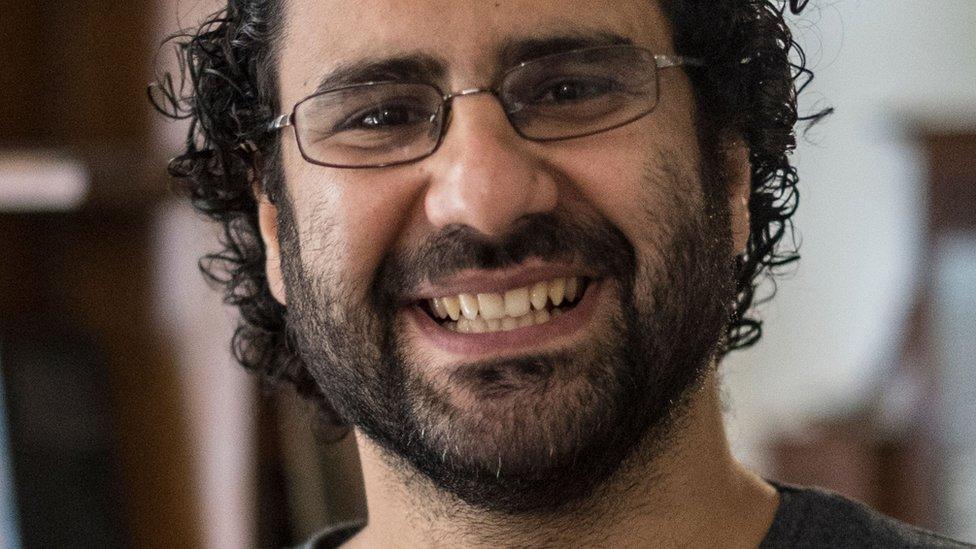
- Published14 November 2022

- Published10 November 2022
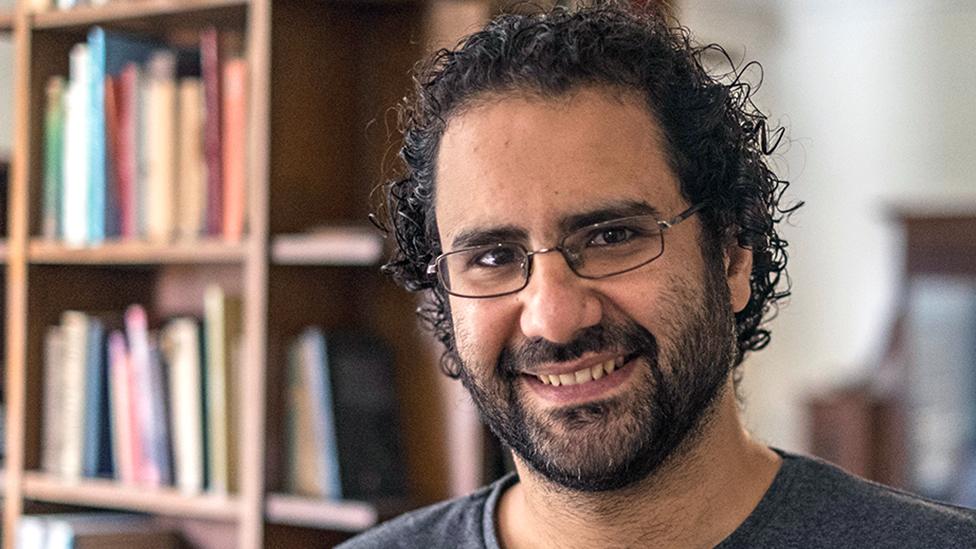
- Published9 November 2022

- Published7 November 2022
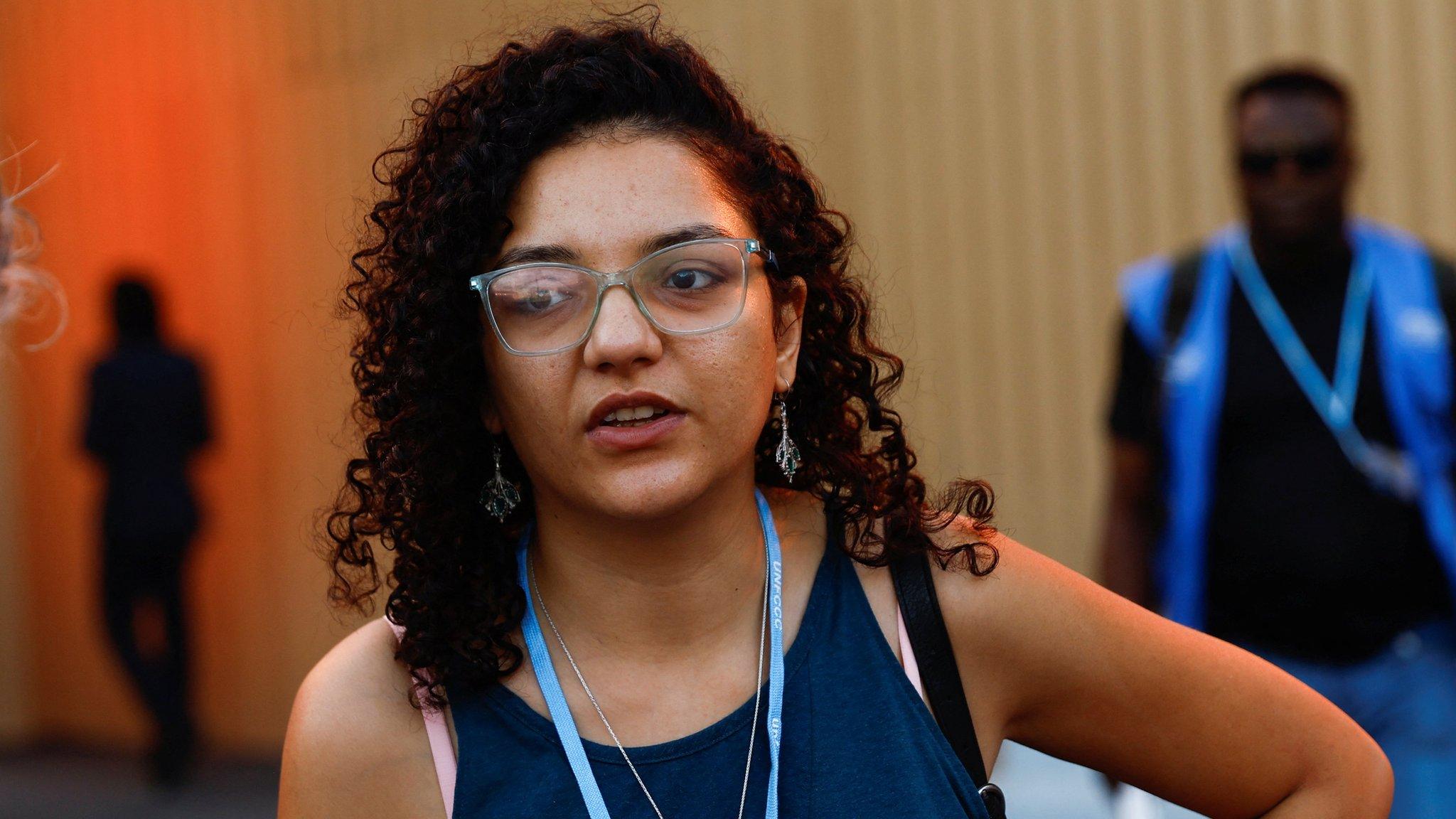
- Published7 November 2022
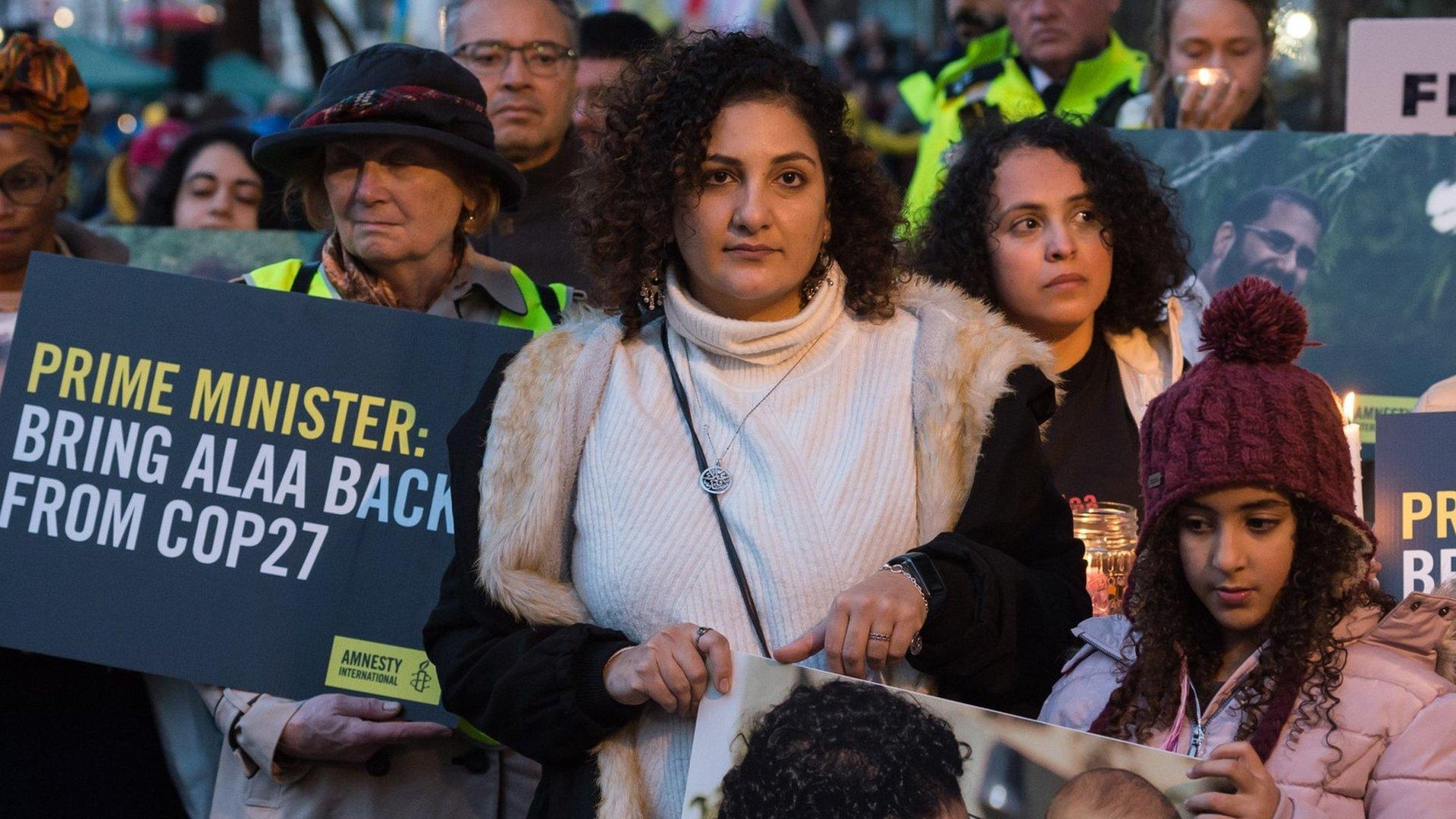
- Published1 November 2022
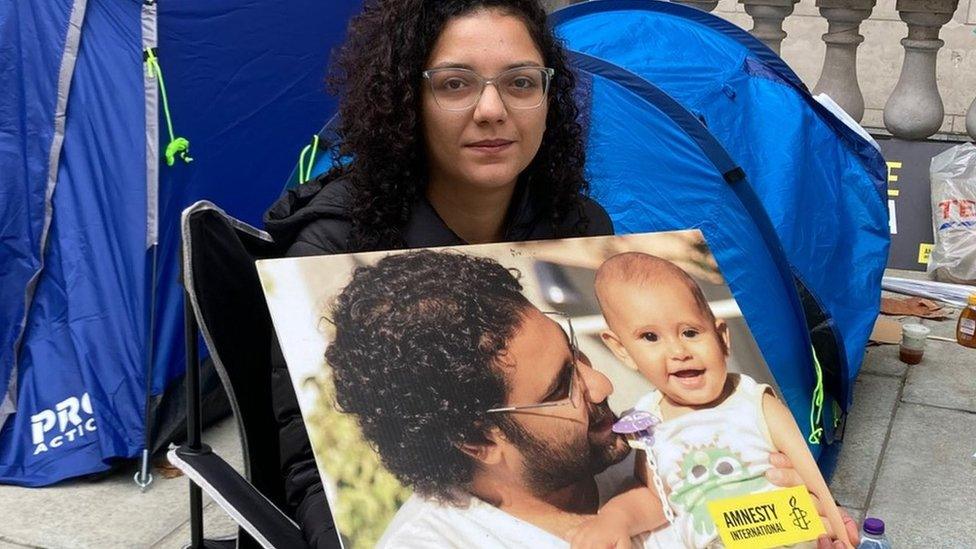
- Published21 June 2022
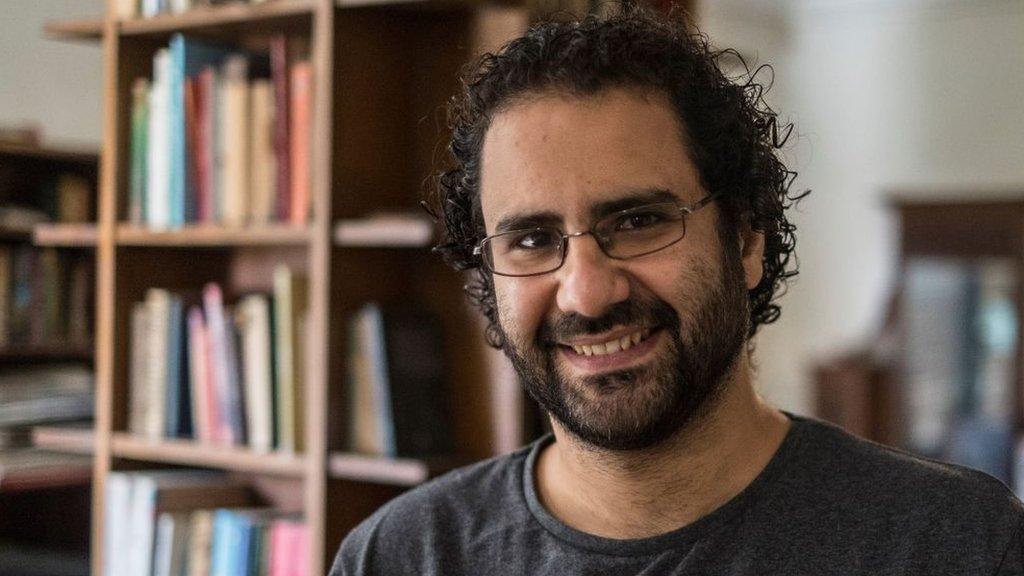
- Published18 May 2022
